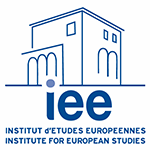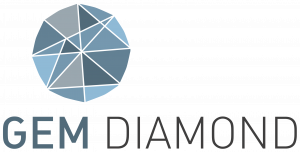In the same section
-
Masters and Advanced masters in European Studies
- Advanced Master in EU Interdisciplinary Studies
- Advanced Master in European Law
- Master in European Studies - EU policy track
- Master in European Studies - EU-Asia track
- Master in European Studies - EUROSUD track
- Master in Economics – Business Economics
- Master in Economics - Economic Governance and Public Policy in Europe
- Summer Schools and Conference cycles
- Innovative teaching activities at the IEE-ULB
- PhD
-
Share this page
Summer Schools and Conference cycles
Summer schools in European Studies in Brussels
A summer school in European Studies? The summer schools of the IEE-ULB are international training courses that take place during the university holidays.
The summer schools are the ideal option for those who wish to deepen their competencies in European studies around the work schedule. Expand your knowledge of European Studies and enhance your professional network.
-
European Area for Criminal Law
-
The IEE-ULB organizes, in collaboration with the ECLAN network, a programme that offers, in addition to a conference on a topical issue, a series of teachings integrating both academic perspectives and practical insights into crucial themes of European Criminal Law.
This year’s Summer School will be centered on the external dimension of judicial cooperation in criminal matters, and delve into:- Negotiating and Adopting EU Criminal Law Instruments
- Judicial Control
- Cooperation with privileged partners and candidate countries
- Extradition & MLA agreements with third countries
- Eurojust cooperation with third countries and the ICC
- Cooperation between the EPPO and third countries in the fight against EU fraud
- EU cooperation with international organizations
-
EU Law and Policy on Immigration and Asylum
-
The ODYSSEUS network organises a summer school on immigration and asylum law and policy in Europe. The speakers and experts come from varied academic and professional backgrounds: Member States, institutions and international organisations.
Programme and registration -
Globalisation, the EU and Multilateralism - GEM
-
L’école doctorale GEM propose une école d’été sous forme de séminaires. Ces cours sont ouverts aux doctorants désireux d’approfondir leur compréhension des institutions européennes, des politiques économiques, des interactions internationales, etc.
2024 GEM Summer School
Conference cycles at IEE-ULB
Expand your knowledge of European studies through the conference cycles at IEE-ULB. Discover, among others, the Legal Tuesday seminars and our “European Law Tasters”.
IEE-ULB organises conferences and other meetings around European studies. Open to the general public, these events are led by experts. They also provide networking opportunities.
-
Legal Tuesday conference cycle
-
This conference cycle proposes seminars that scrutinise various aspects of European Commission policy in the field of competition law, led by high quality professionals from the European institutions and the most important law firms specialised in this area.
For over 30 years, the IEE-ULB has been organising a retraining programme on Community law for anyone with an interest in issues relating to the development of the ‘acquis communautaire’.
Originally organised by Professor Michel Waelbroeck and now by Professors Jean-François Bellis and Denis Waelbroeck, European Competition Law Tuesdays are a forum for discussion around the interventions of different experts.
Take a look at the programme and practical information.
-
European Law Tasters
-
European Law Tasters is a series of conferences initiated by jurists at the IEE-ULB in 2009 to confront current European research in legal matters with the positions of the professional world and those of civil society.
The format consists on early evening (from 6:00 pm to 8:00 pm), periodical conferences where two speakers present their points of view on a specific topic of EU law.
After the lectures, the second hours is dedicated to a debate, to allow extensive exchanges with the audience, under the coordination of a moderator. Finally, conversations can continue informally during the cocktail that follows.
The target audience for these conferences are both the academic and professional communities as well as citizens interested in European issues.
Contact Françoise Vanden Broeck at the Student Administration Office for more information and to register for our mailing list.


